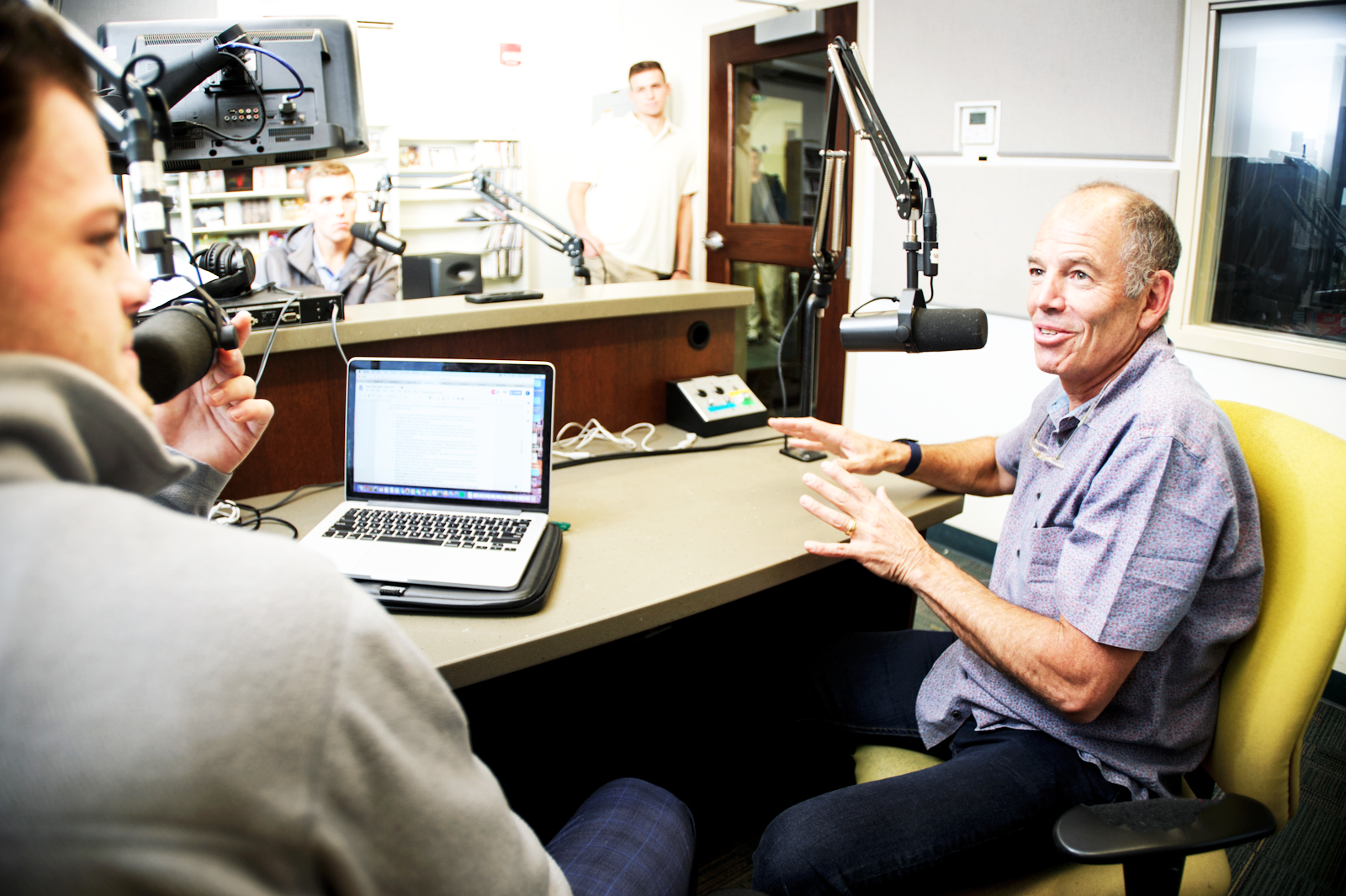
Photo Courtesy of Hamilton College
If you are one of more than 130 million Netflix streaming subscribers, you have Hamilton alum Marc Randolph ’80 to thank for your easy access to entertainment. This past Monday, Randolph stood on the small stage of the College Chapel and spoke with great nostalgia about his experience at Hamilton College, in addition to detailing lessons he learned in his career as an entrepreneur. The majority of this advice centered around the three characteristics he believes are essential to becoming a great entrepreneur: a tolerance for risk, a multitude of ideas, and confidence.
Randolph started his speech with a quote by William Goldman, an American novelist and screenwriter, who said, “Nobody knows anything.” Randolph said this quote resonated with him and allowed him to take risks, while also serving as a reminder not to be wary of coming up with “bad ideas.” Time spent being cautious and planning out how to approach something could be spent taking action and obtaining experience, he said. If one are [
sic
] too focused, he added, all the risk will be “squeezed out of you.”
In order to generate risky ideas, Randolph said that one must look for pain and see the world as an imperfect place. It is probable that every individual has had an idea about how to alter the design of something, or how to fix a very simple everyday issue but has not acted upon these thoughts. Randolph said following such logical thoughts is how he developed Netflix.
Starting the company was a risk. Randolph said that there was no way of knowing whether or not it was a good or bad idea. It actually wasn’t one idea at all, but many ideas which merged together during his car rides with the co-founder of Netflix, Reed Hastings. On one of these productive drives, Randolph suggested that they develop video rental by mail. This, however, was difficult since films at the time were on cassette tapes, which were fragile and expensive. Months later, when the DVD emerged, Hastings wrote a check for $2 million and they spent six months creating Netflix in Scotts Valley, CA.
After Randolph presented his and Hastings’ new idea to his wife, she responded with, “That’s the stupidest thing I’ve ever heard.”
Still, he was not discouraged. He had enough confidence in the growing company to lean in. On Apr. 14, 1998, Netflix began to sell and rent DVDs.
That is, until they were faced with a dilemma. Namely, 99 percent of their revenue was coming from selling DVDs, which is a commodity business; many companies would eventually be doing it too, potentially driving them out of business. The other option was to get all of the films on rental, but this path showed no immediate signs of success. Ever the risk-takers, they chose the latter and Randolph joked that this kind of risk has a way of “focusing your mind.”
Randolph and his team worked to address the problems within Netflix they identified and adjusted the service to better benefit the viewer. For instance, they created the “queue”, allowing the user to build a list of movies and television of interest, and created a subscription fee to retain customers and make payments easier.
Randolph reminded students that they have only one-to-four years remaining at the “sheltered” institution and now is “the time to take risks.” Ending his speech, he told the audience that change has to start with yourself and with your confidence, saying: “Success is proportionate to how many bad ideas you can try.”
